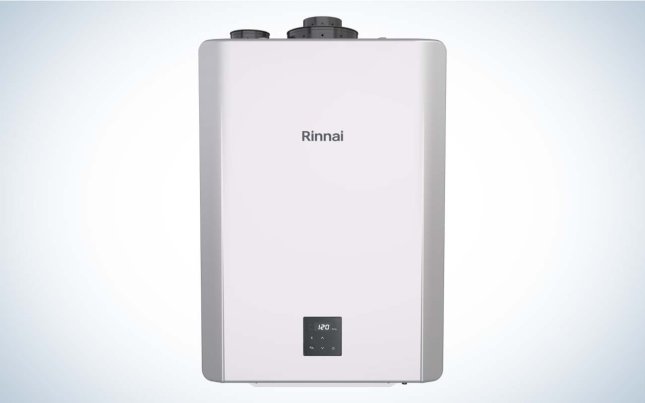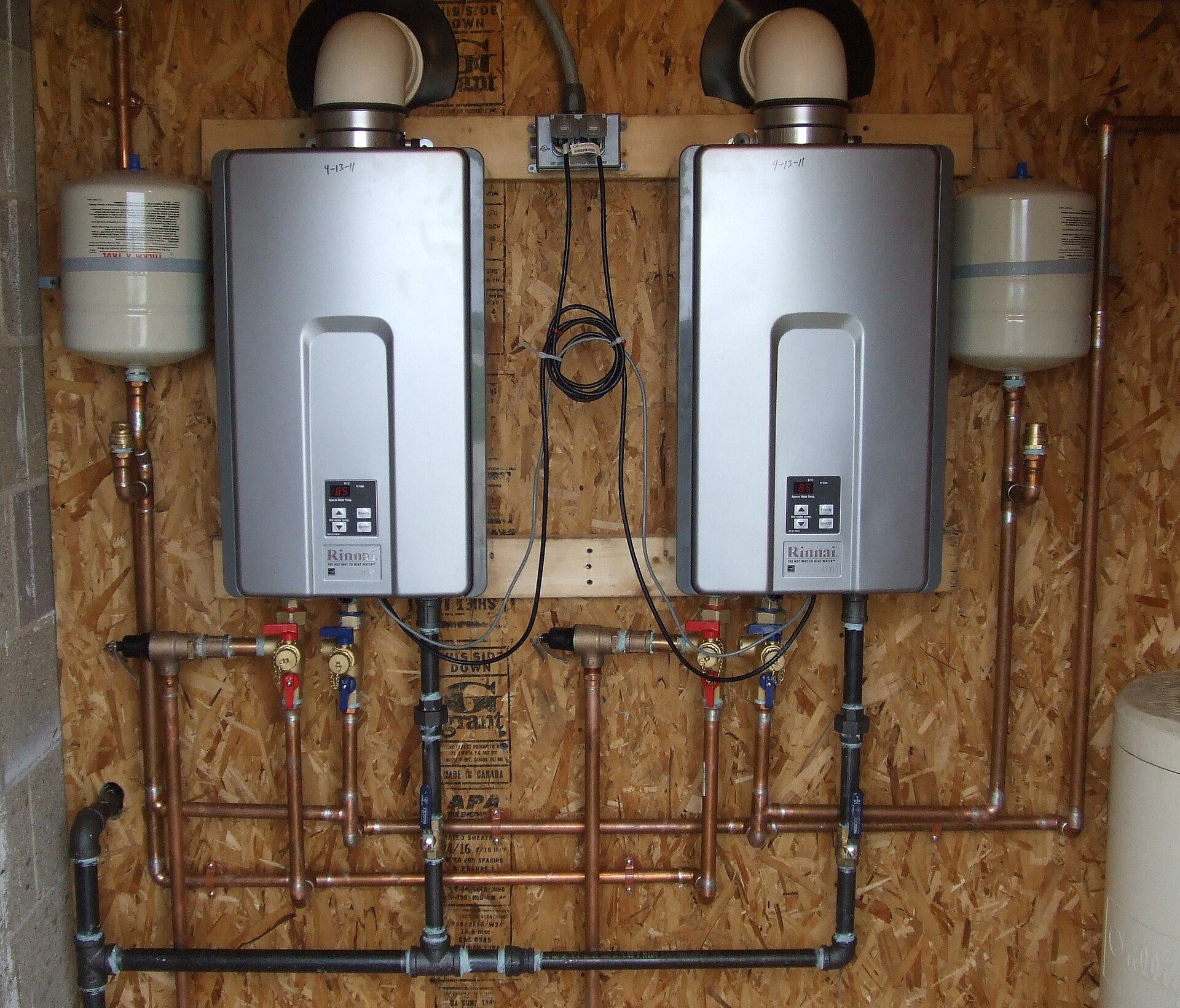How Continuous-Flow Water Heaters Present Unmatched Benefits
How Continuous-Flow Water Heaters Present Unmatched Benefits
Blog Article
Just about every person is bound to have his or her own concepts with regards to Six Benefits of a Tankless Hot Water Heater.

In a world where convenience and performance reign supreme, it's no surprise that homeowners are continuously on the lookout for smarter methods to manage their home's power consumption and comfort. One advancement that has steadily acquired popularity is the tankless hot water heater. However exactly what makes these systems stand out from the standard tank-based versions most of us grew up with? Allow's dive in and check out the advantages of tankless water heaters, aiding you determine if it's time to make the button in your home.
Introduction
Photo this: you enter the shower after a long day, anticipating a relaxing cascade of hot water, only to be welcomed by icy droplets due to the fact that the last person utilized it all up. Sound acquainted? Conventional water heaters save a set quantity of hot water, implying you go to the mercy of that tank's supply. Tankless systems, on the other hand, heat water on demand. Say goodbye to running out mid-shower, say goodbye to fumbling with schedules just to ensure hot water is readily available.
Understanding Tankless Water Heaters
What Are Tankless Hot Water Heater?
Tankless water heaters, often referred to as on-demand or immediate water heaters, supply hot water only as it's required. As opposed to saving gallons of pre-heated water, these units kick into activity the moment you turn on the faucet. Water travels through a warmth exchanger, heating up in real-time, meaning you obtain a continuous circulation of warm water without the need for a big container resting lazily by.
How Do They Vary from Standard Equipments?
Traditional heaters hold a storage tank of hot water, utilizing power to keep that container at a consistent temperature. Tankless systems eliminate the standing supply, lowering lost power and the cumbersome footprint of a big cylinder. Basically, you're updating from a "accumulation" way of thinking to a "made-to-order" technique.
Typical Types of Tankless Units
Tankless water heaters typically are available in two selections: gas and electric. Gas models often tend to deliver higher flow rates, perfect for bigger households, while electric designs typically offer smaller sized homes and are generally simpler to install. Furthermore, some systems are made for point-of-use (serving one component) while others can take care of the entire home's warm water requirements.
Secret Benefits of Tankless Hot Water Heater
1. Countless Hot Water Supply
Ever needed to arrange showers so everyone obtains their reasonable share of hot water? With tankless, that becomes a distant memory. As long as the heating unit's circulation capability isn't exceeded, you can take back-to-back showers without developing into a popsicle.
2. Energy Effectiveness and Price Savings
Say goodbye to heating a giant storage tank's well worth of water and keeping it toasty all the time. Tankless heating systems reduce standby power losses, which can decrease energy bills. While the initial price could be greater, the long-term cost savings typically warrant the investment.
3. Space-Saving Layout
If your home is short on storage space, eliminating the cumbersome container maximizes useful space. Tankless devices are compact and can frequently be placed on wall surfaces, tucked away in edges, or installed in tight energy wardrobes without gobbling up the whole room.
4. Longer Life-span
A well-maintained tankless water heater can outlast its tank-based relative. Conventional containers might last 10-15 years, while tankless models can keep downing along for two decades or more, making them a strong investment gradually.
5. Improved Water High Quality
Storing water in a storage tank can in some cases lead to sediment buildup or a somewhat "off" taste. With tankless systems, fresh water is warmed on the spot, decreasing the possibilities of debris build-up and potentially offering cleaner-tasting water.
Factors to consider Prior To Changing
Though the benefits are compelling, it's important to take into consideration a few elements before completely devoting.
Initial Investment Costs
Tankless heating systems commonly include a greater in advance price tag. Between the system itself and possible installment adjustments, the first expense could provide you sticker shock. Yet remember to see it as a long-term investment.
Setup Requirements
Depending on your home's infrastructure, you could require additional electric capability or gas line upgrades. Ensure you recognize the setup demands and consult with an expert to prevent shocks.
Assessing Your Home's Water Usage Patterns
If your house simultaneously utilizes numerous components with high warm water need, make certain the unit's flow price satisfies your requirements. Knowing your usage patterns assists you pick the right size and sort of tankless heating system.
Maintenance and Treatment Tips
Tankless systems are reasonably reduced maintenance, but they aren't set-it-and-forget-it appliances.
Regular Cleansing and Descaling
Difficult water minerals can build up in the warmth exchanger, affecting efficiency. Normal descaling (usually suggested annually) keeps the device performing at peak performance.
Annual Professional Inspections
A yearly checkup from an expert guarantees small issues are captured early. They'll assess the system's performance, search for leakages, and assist maintain ideal efficiency.
Making Certain Appropriate Ventilation
For gas models, correct ventilation is important to securely eliminate exhaust gases. Make sure venting systems are clean and appropriately mounted to stop any kind of potential safety risks.
Comparing Different Brands and Models
Not all tankless water heaters are produced equal.
Researching Dependable Manufacturers
Look for reliable brand names with a history of creating high quality devices. A reliable maker usually gives much better customer support and longer warranties.
Checking Out Testimonials and Individual Responses
User evaluations and responses from neighbors or good friends that have gone tankless can supply important understandings. Occasionally, real-life experiences can be more telling than advertising brochures.
Installation: DIY or Specialist?
While some home owners relish tackling jobs themselves, tankless setup may not be the very best time to break out the toolbox.
Advantages and disadvantages of DIY Installment
A do it yourself set up might conserve money, yet it features dangers. Inaccurate installment can bring about inadequacy or safety and security problems. If you come in handy and have experience, it might be possible-- however proceed with care.
When to Call a Specialist Plumbing
For many, calling a pro makes certain whatever's done properly. An expert plumbing technician understands neighborhood codes, sizing needs, and venting parameters, lowering the risk of accidents.
Making best use of Efficiency
You have actually purchased a tankless device-- now optimize its efficiency.
Optimum Temperature Level Setups
Most people establish their systems between 120-140 F. Readjusting the temperature level can improve comfort and financial savings. Experiment to locate a pleasant spot that does not throw away power.
Pairing with Low-Flow Fixtures
Want to stretch your unit's capabilities? Think about mounting low-flow showerheads and faucets. They decrease water usage, allowing your tankless system to supply a constant stream of warm water without stressing.
Environmental Influence
Tankless water heaters align with greener living objectives.
Reduced Carbon Footprint
By utilizing much less power and just home heating water as needed, tankless systems can reduce your home's carbon footprint, minimizing your environmental effect.
Conserving Natural Resources
Less power consumption and much less wasted hot water equate right into fewer natural resources being made use of, an environmental win-win.
Who Benefits The Majority Of from Tankless Heating systems?
The elegance of tankless heating units is that they can fit a range of homes.
Large Households vs. Solitary Owners
Big families might love the unlimited warm water supply, while single passengers appreciate the energy financial savings from not warming a whole tank for simply someone's morning shower.
Home Owners with Limited Room
If your home is short on square video footage, shedding the large storage tank frees up area for other fundamentals-- or possibly just a lot more breathing space.
Eco-Conscious Customers
Going tankless aligns with environmentally friendly worths, ensuring you're not wasting energy or sources.
Future Trends in Tankless Water Heaters
The world of home devices is ever-evolving, and tankless hot water heater are no exception.
Smart Home Combination
Imagine readjusting your hot water heater's temperature by means of an application or getting upkeep notifies on your phone. As smart home technology breakthroughs, we'll see more connection and comfort.
Improvements in Modern technology
R&D is frequently boosting heat exchangers, making devices much more effective and resilient. Future models could be also quieter, much more compact, and far better fit for varying climates.
Final thought
Picking a tankless water heater is greater than just updating your home's warm water system; it's investing in long-lasting comfort, power efficiency, and a greener lifestyle. By considering your home's water usage, bearing in mind installment demands, and committing to normal maintenance, you can appreciate a stable stream of warm water without the baggage of a bulky container. As innovation progresses, you can look forward to also smarter, extra reliable tankless remedies that not only make your life easier however also benefit the earth.
Six Benefits of a Tankless Hot Water Heater
Continuous hot water. Large families know what a pain it is to hop into the shower and get blasted with cold water. With a tankless hot water heater, this doesn't happen as long as you install the right size tank. Even if you don t have a large family, a tankless hot water heater allows you to use multiple appliances at once without running out of hot water. Reduced energy bill. Because tankless heaters are essentially "off" when the water tap is not on, they use less energy overall. In fact, an ENERGY STAR-qualified tankless hot water heater can use 25-40% less energy than a conventional water heater, and save the average family $100 or more annually. Longer life. Get more bang for your buck with a greater lifespan. Specifically, conventional hot water heaters last about 10-13 years compared with up to 20 years for a tankless hot water heater. Less space. Did you know that tankless hot water heaters can be hung on a wall almost anywhere in your home? Plus, at 28" tall by 20" wide and 10" deep, a tankless hot water heater takes up a lot less space than a conventional hot water heater, which is 60" tall and 24" wide. Good for the environment. In addition to reducing the amount of energy used, most propane-fired tankless water heaters are made of recycled materials. Many conventional tanks, on the other hand, go directly to the dump once they've served their purpose. High safety ratings. Conventional water heaters are "always on" and thus pose safety risks more often than do tankless heaters, which only operate when warm water is needed. https://www.rotorooter.com/blog/water-heaters/six-benefits-of-a-tankless-hot-water-heater/

I discovered that blog entry on while doing a search on the internet. Feel free to take the opportunity to promote this blog if you appreciated it. We truly appreciate reading our article about Why You Should Consider a Tankless Water Heater.
Schedule Appointment Now Report this page